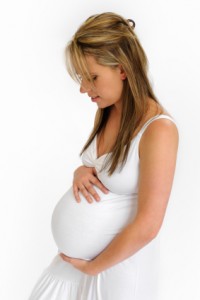HIV infection
What is HIV and how is it usually transmitted?
- Receive treatment for HIV i.e anti-retroviral drugs during pregnancy which may also promote your overall well-being.
- Have a caesarean section instead of vaginal delivery.
- Avoid breast feeding which reduces the risk of transmission by 2-fold.
- You will be taken care by a group of healthcare professionals including a physician who specializes in HIV patients, an obstetrician, pediatrician, midwifes your general practitioner and social worker if required.
- You may be advised to take anti-retroviral drugs during pregnancy and monitored for possible side effects.
- You will be screened early in pregnancy and again at 28 weeks of pregnancy for other sexually transmitted diseases such as Hepatitis B or syphilis and vaginal infection. You would be treated appropriately if necessary.
- Detail scan to detect any fetal anomalies especially if HAART is started less than 13 weeks of pregnancy.
- You may be advised to have an elective caesarean section at 38 weeks to reduce the risk of transmission to your baby.
- Otherwise, you will be having similar antenatal check up like other pregnancy women.
- If you do not require any anti-retroviral drug for yourself. Your doctor may offer you this treatment to reduce the risk of transmission to your baby at 28 – 32 weeks. The treatment could be zidovudine alone or HAART. (Highly active anti-retroviral treatment)
- You are already on HAART. Your doctor will usually ask you to continue with these medications or review it’s the combination of medications at 13 weeks of pregnancy to see whether you need to change to other medications.
- If you are diagnosed with HIV late in pregnancy and labor you will be started on HAART on continued during and after labor.
- Liver problems and rashes
- Stomach and digestive problems
- Breathlessness and fatigue
- Diabetes
- Reduce the levels of iron in your blood stream causing anemia.
- High blood pressure during pregnancy may be higher in patients taking zidovudine.
- You are on zidovudine only.
- You are not taking HAART.
- If the virus could be detected in your blood.
RECOMMENDED BOOKS
[easyazon-image align=”none” asin=”0786439211″ locale=”us” height=”160″ src=”http://ecx.images-amazon.com/images/I/41phx%2B-fRZL._SL160_.jpg” width=”106″] [easyazon-image align=”none” asin=”1600940137″ locale=”us” height=”160″ src=”http://ecx.images-amazon.com/images/I/517O-3BU0IL._SL160_.jpg” width=”103″] [easyazon-image align=”none” asin=”0763750425″ locale=”us” height=”160″ src=”http://ecx.images-amazon.com/images/I/51eG7PsO9SL._SL160_.jpg” width=”107″] [easyazon-image align=”none” asin=”0966637305″ locale=”us” height=”160″ src=”http://ecx.images-amazon.com/images/I/51BRHXPPE7L._SL160_.jpg” width=”106″] [easyazon-image align=”none” asin=”0787939641″ locale=”us” height=”160″ src=”http://ecx.images-amazon.com/images/I/51yVIT23vfL._SL160_.jpg” width=”103″]








